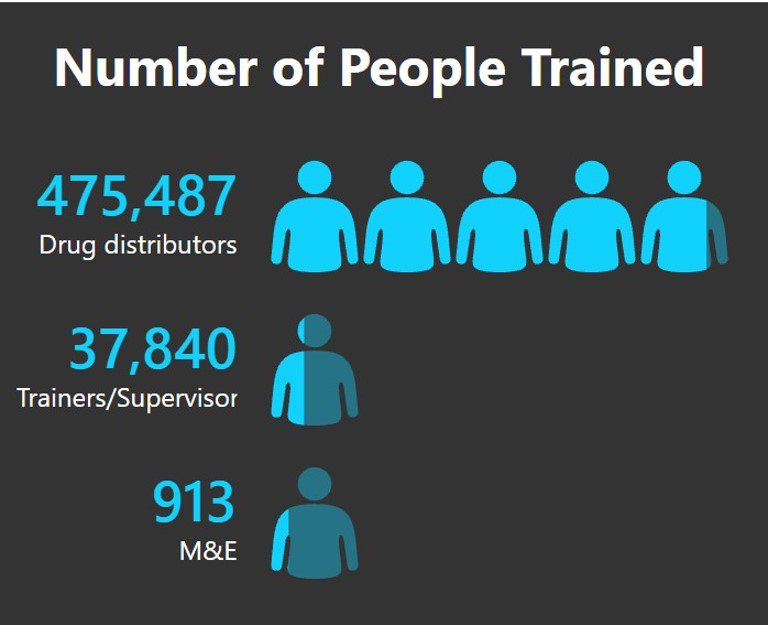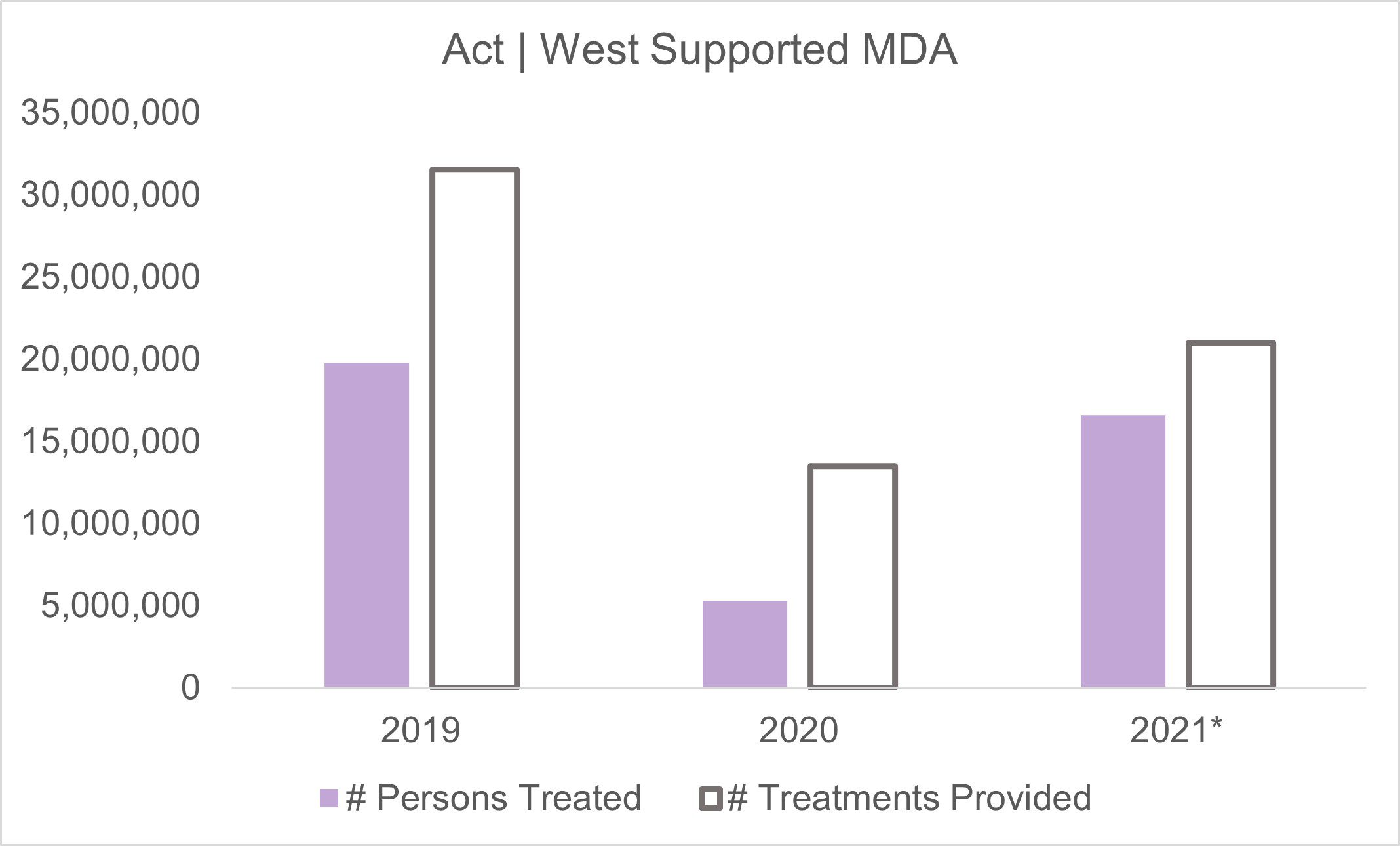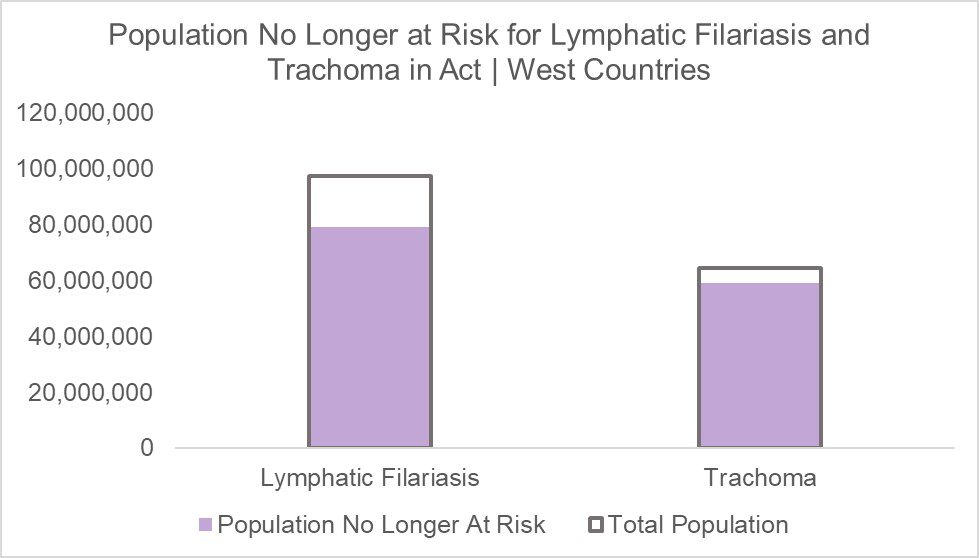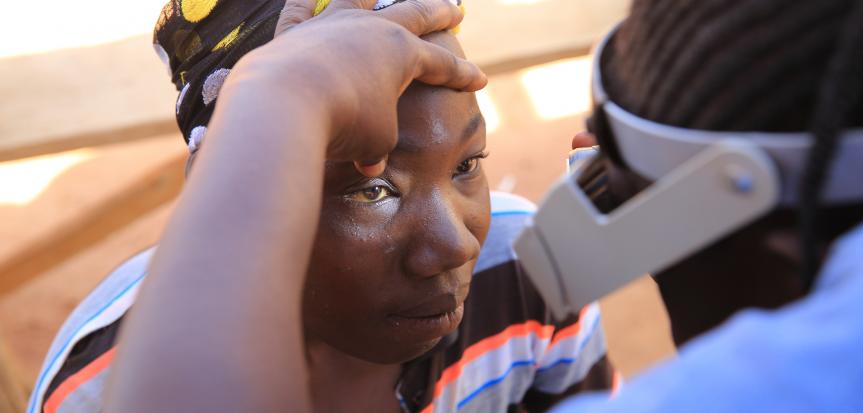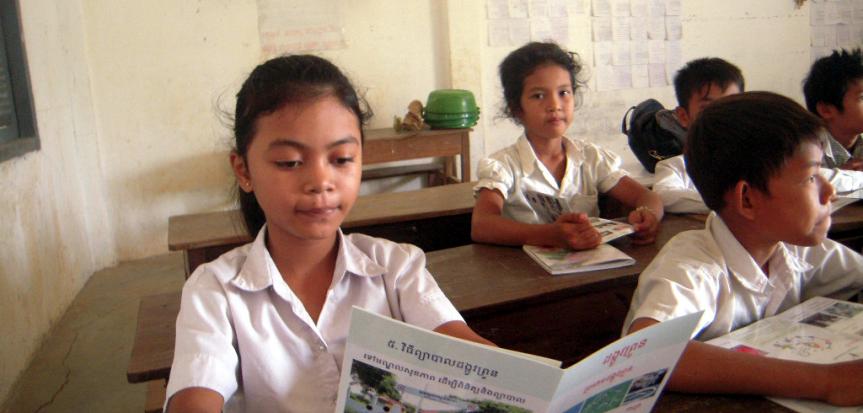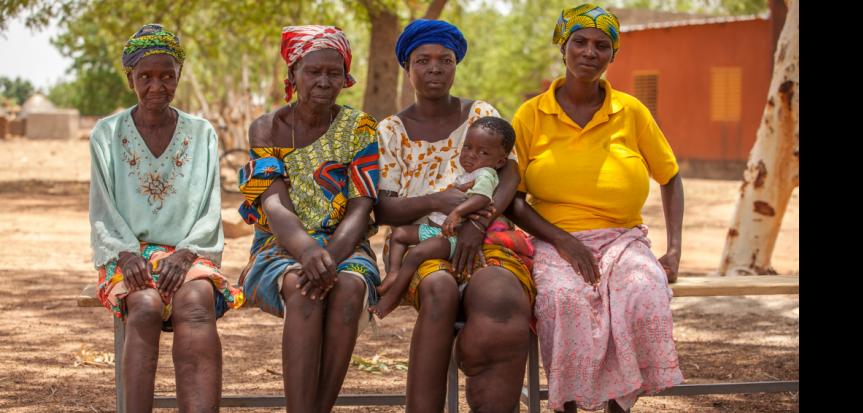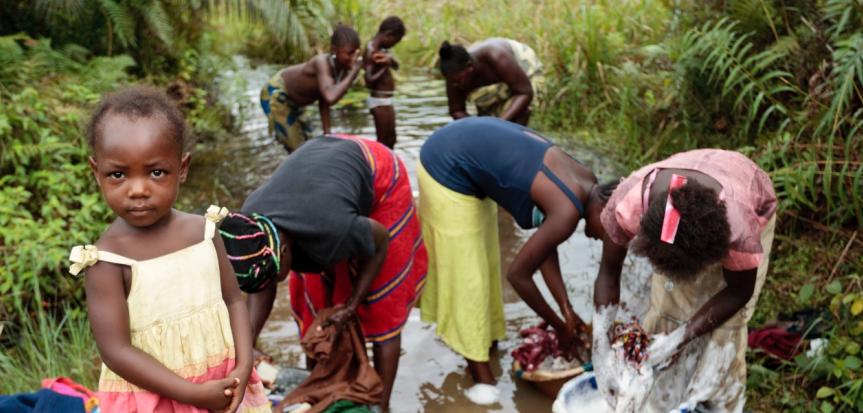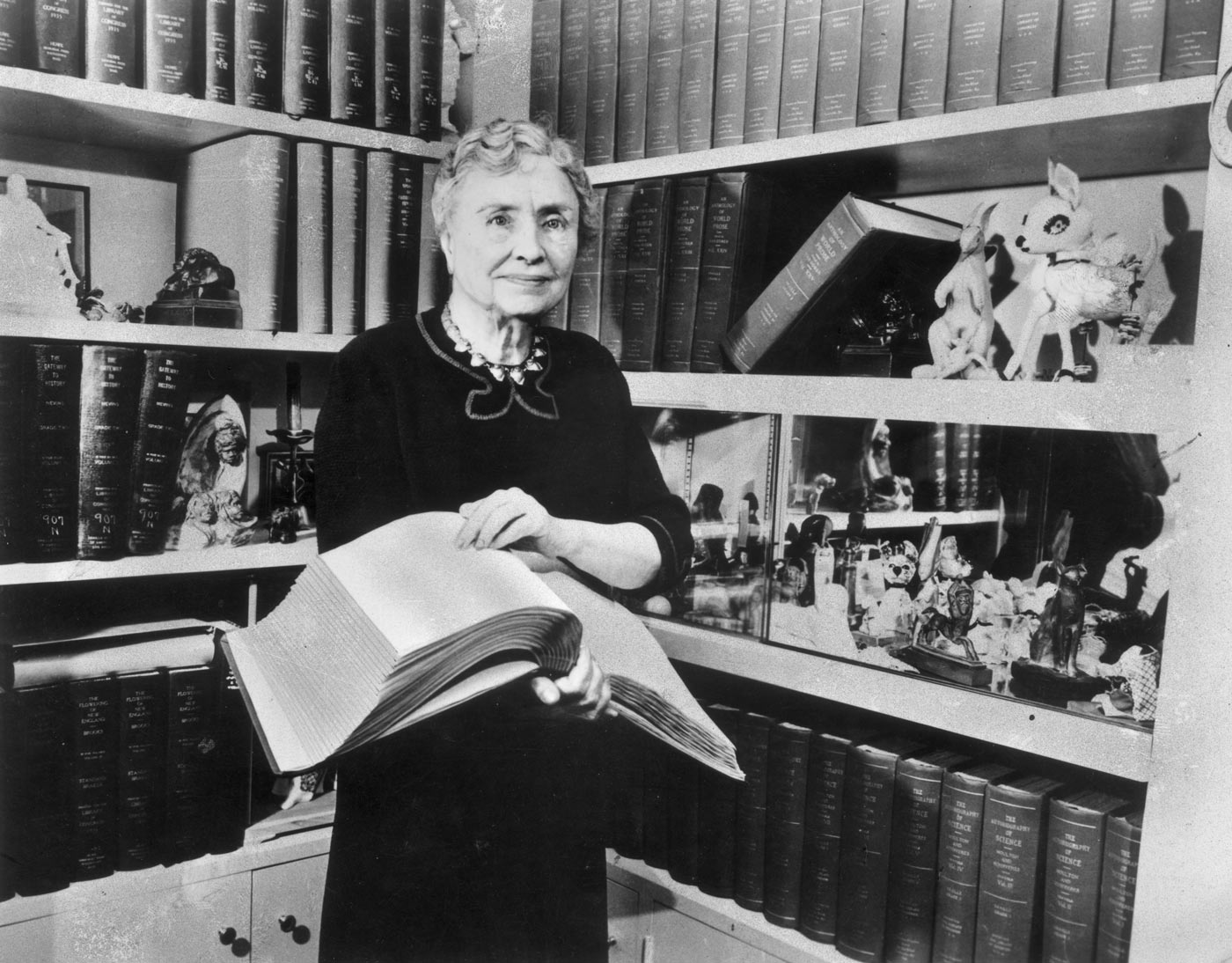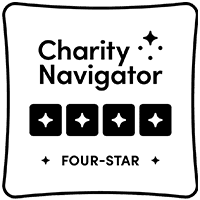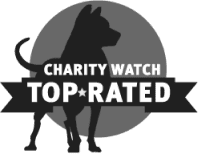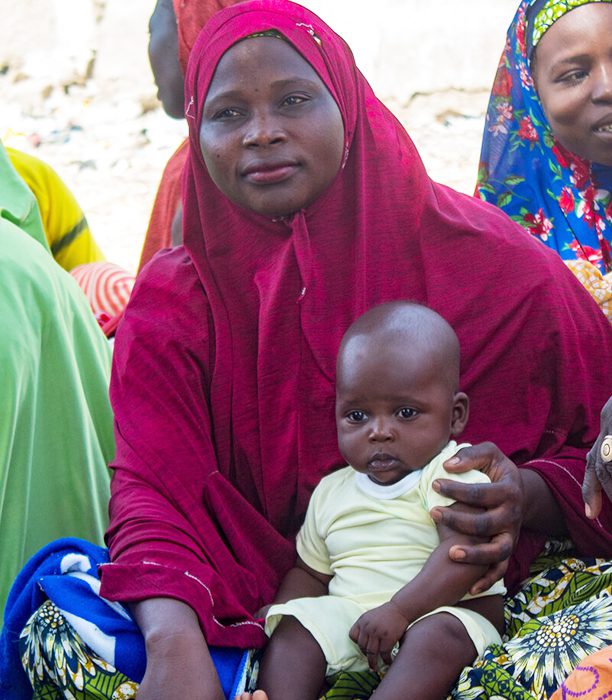Neglected Tropical Diseases
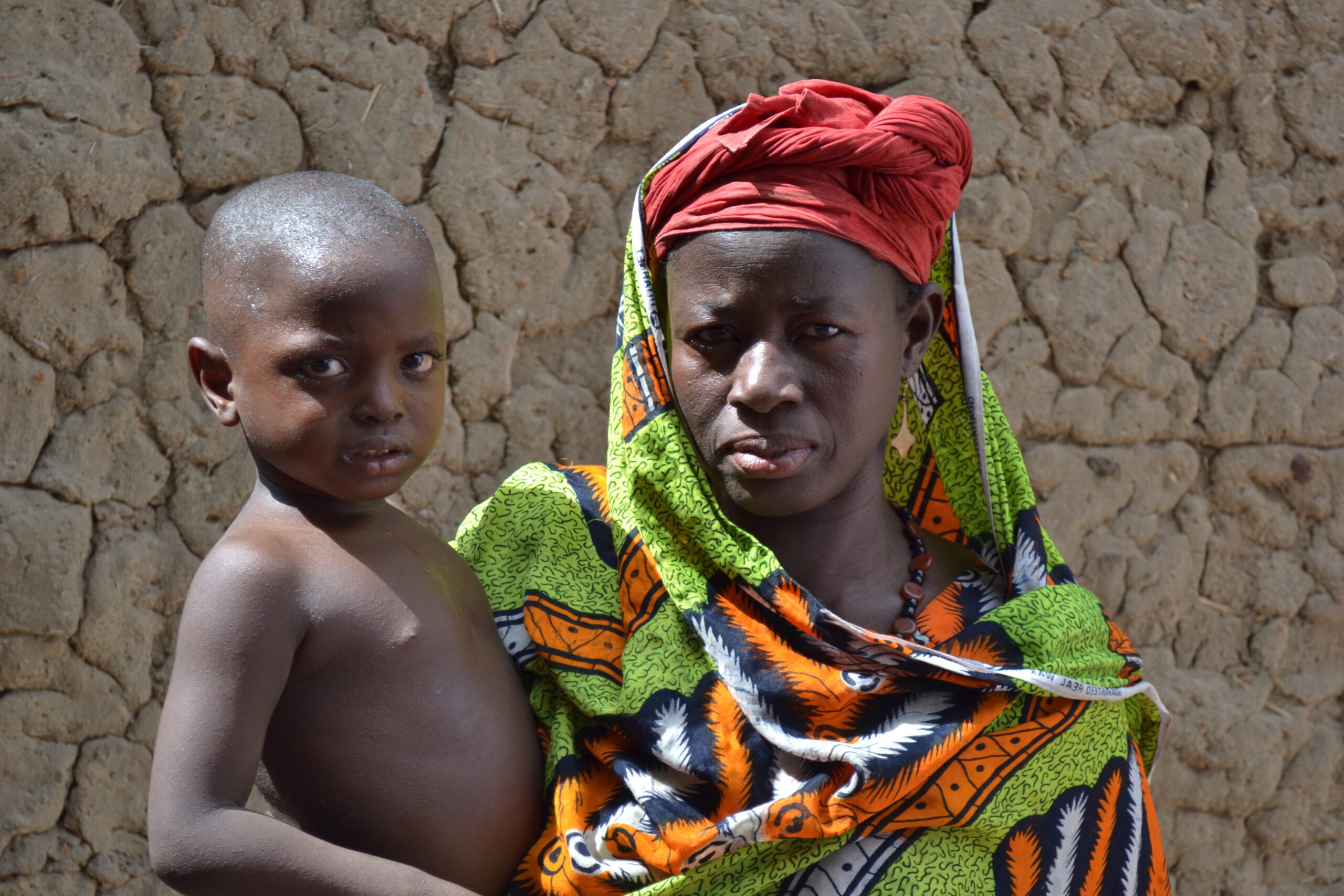
Controlling and Eliminating Neglected Tropical Diseases
Neglected tropical diseases — including trachoma, lymphatic filariasis, schistosomiasis, onchocerciasis and soil-transmitted helminths — are a group of mainly parasitic, viral, or bacterial diseases that can cause a host of disabling conditions such as blindness, undernutrition, and painful physical deformities. In addition to the physical impact of these diseases, the lost economic opportunities and social stigma can be equally devastating. Because they are most prevalent in lower income countries, where basic healthcare can be a challenge, neglected tropical diseases are also sometimes referred to “diseases of poverty.” Luckily, many of these diseases are entirely preventable or treatable.
Integrated Control of Neglected Tropical Diseases
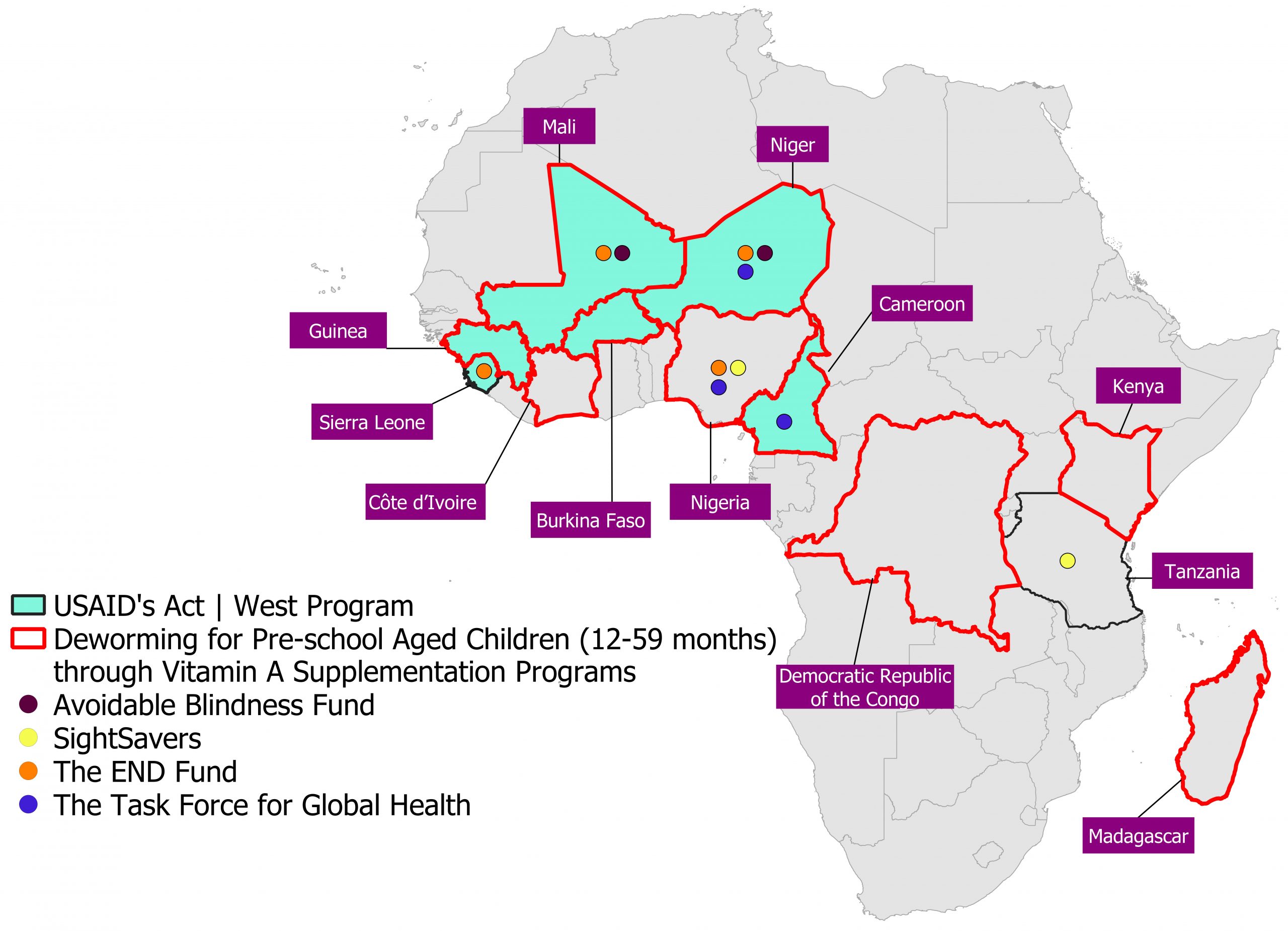
Helen Keller Intl has a long history of supporting efforts to eliminate and control neglected tropical diseases. Since 2018, Helen Keller has been the lead implementing partner of the USAID’s Act to End Neglected Tropical Diseases (Act | West) program. Working in six out of 11 Act | West countries, Helen Keller aids Ministries of Health in West Africa in their goals to control and eliminate diseases, as well as integrate treatment into national health systems, ensuring greater sustainability of program achievements. Prior to Act | West, Helen Keller helped implement USAID-funded END in Africa, ENVISION, and NTD Control Program projects and managed USAID’s Morbidity Management and Disability Prevention project.
In addition to USAID-funded projects, Helen Keller has been a partner on the Conrad N. Hilton Foundation’s Eliminating Trachoma project since 1998. In 2008, funding to support the elimination of trachoma as a public health problem launched in Mali, Niger, and Tanzania. Helen Keller served as the lead implementing partner for the Department for International Development / Foreign, Commonwealth & Development Office UNITED and ASCEND projects from 2014 to 2021. The focus of these initiatives was to control and eliminate neglected tropical diseases in Katsina, Borno, and Adamawa States in Nigeria, as well as to eliminate trachoma in Tanzania in collaboration with Sightsavers. Since 2015, Helen Keller has been implementing the END Fund’s integrated neglected tropical disease projects in Akwa Ibom State, Nigeria.
The organization has also been a key player in the END Fund’s Reaching the Last Mile project, targeting the elimination of onchocerciasis and supporting lymphatic filariasis morbidity management since 2018 in Mali and Niger. Plus, a number of other neglected tropical disease projects and activities funded by various donors are coordinated at the country-level across Africa and Asia.
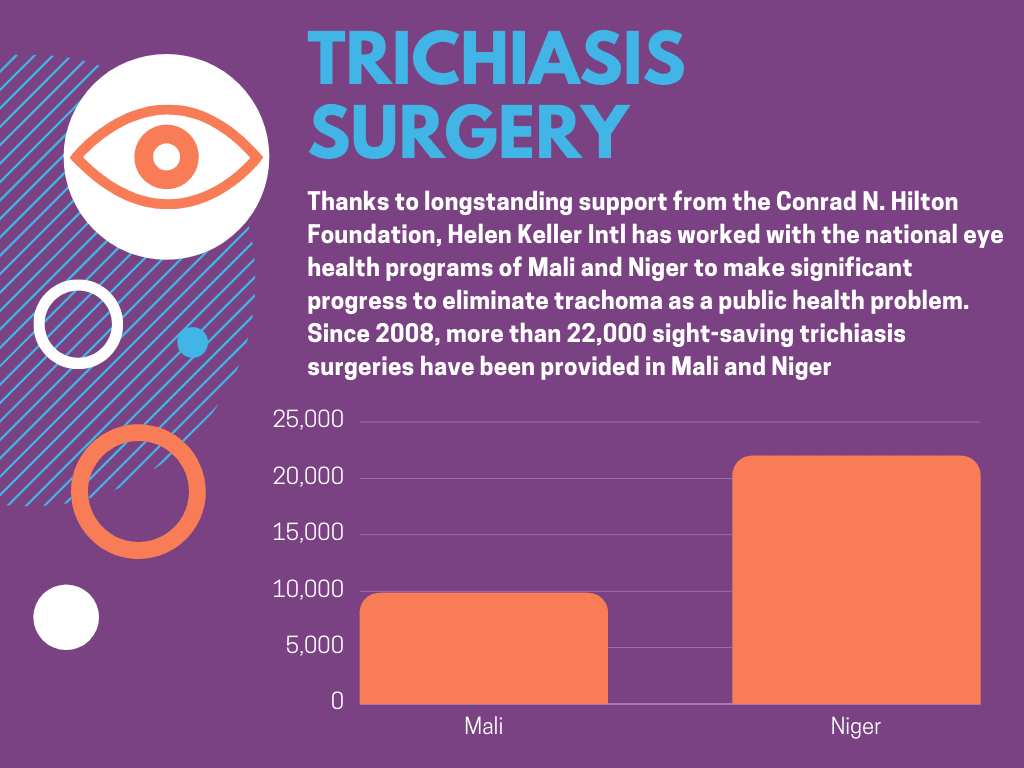
Success Stories
COVID-19 has had a major impact on neglected tropical disease control and elimination activities since the pandemic began in March 2020. Despite challenges posed by the COVID-19 pandemic, as well as political or sociopolitical insecurity, and challenging implementing environments, significant progress has been made towards the control and elimination of trachoma, lymphatic filariasis, schistosomiasis, onchocerciasis, and soil-transmitted helminths. Helen Keller has continued to support national efforts with the Ministries of Health to adapt and establish risk mitigation strategies and standard operating procedures. These measures include supporting Ministries of Health to purchase and use personal protective equipment like face masks and hand gel and shifting treatment strategies to reduce the potential transmission of COVID-19. Together, we’ve achieved many noteworthy successes:
- Act | West Success Story: Mural With a Message
- Act | West Success Story: Guinea’s neglected tropical diseases program treats 4.4 million people in 14 days, despite COVID-19
- Success Story: World Neglected Tropical Diseases Day
- Act | West Success Story: Treating all, missing none: Lessons learned from a survey in Burkina Faso
- Act | West Success Story: Approaches to Monitoring Mass Drug Administration in Sierra Leone
- Act | West Success Story: Step by step, making strides to eliminate a disfiguring disease in Sierra Leone
- MMDP Success Story: USAID-funded MMDP Project: A New Chance at Life
- MMDP Success Story: Relieving the Pain of Trachoma
- MMDP Success Story: On World Sight Day, Let’s Recommit to Ending Trachoma
Research and Learning
Helen Keller is an active contributor and participant in the global neglected tropical disease community. We regularly participate in the annual American Society of Tropical Medicine and Hygiene (ASTMH) conference, with many staff submitting abstracts, providing presentations, and leading symposia and in the annual meeting of the Coalition for Operational Research on NTDs (COR-NTD). Helen Keller is also a member of the NTD NGO Network (NNN). We prioritize dissemination of research and best practices related to the implementation of mass drug administration (MDA), disease-specific assessment surveys, and social science research.
- Implementation of mass drug administration for neglected tropical diseases in Guinea during the COVID-19 pandemic. PLoS Neglected Tropical Diseases (2021)
- Achievements and challenges of lymphatic filariasis elimination in Sierra Leone. PLoS Neglected Tropical Diseases (2020)
- Soil-transmitted helminth infection in school age children in Sierra Leone after a decade of preventive chemotherapy interventions. Infectious Diseases of Poverty (2019)
- Prevalence of trachoma in the Kayes region of Mali eight years after stopping mass drug administration. PLoS Neglected Tropical Diseases (2018)
- First evidence of lymphatic filariasis transmission interruption in Cameroon: Progress towards elimination. PLoS Neglected Tropical Diseases (2017)
- Successful Control of Soil-Transmitted Helminthiasis in School Age Children in Burkina Faso and an Example of Community Based Assessment via Lymphatic Filariasis Transmission Assessment Survey. PLoS Neglected Tropical Diseases (2016)
- Schistosomiasis in school-age children in Burkina Faso after a decade of preventive chemotherapy. Bulletin of the World Health Organization (2013)
- The role of nutrition in integrated programs to control neglected tropical diseases. BMC – Medicine (2012)
Impact
